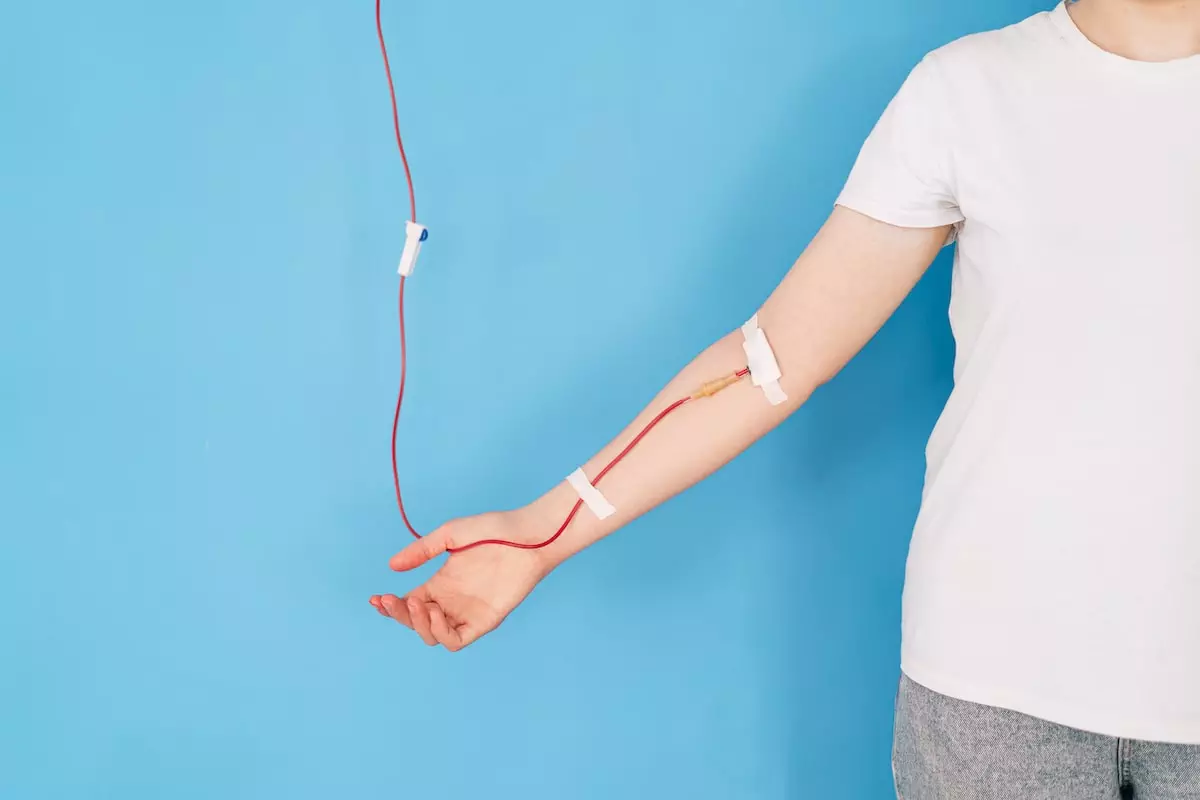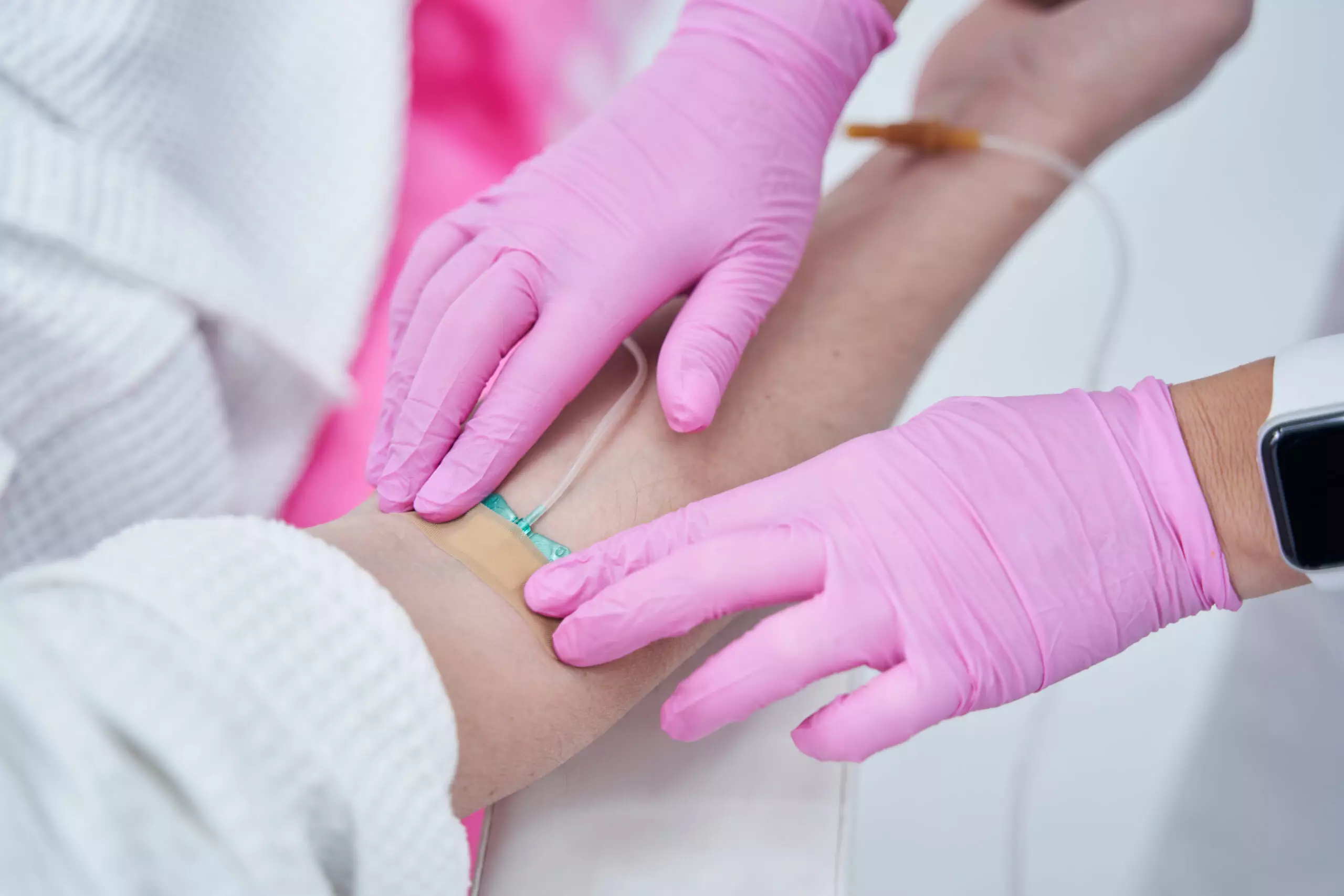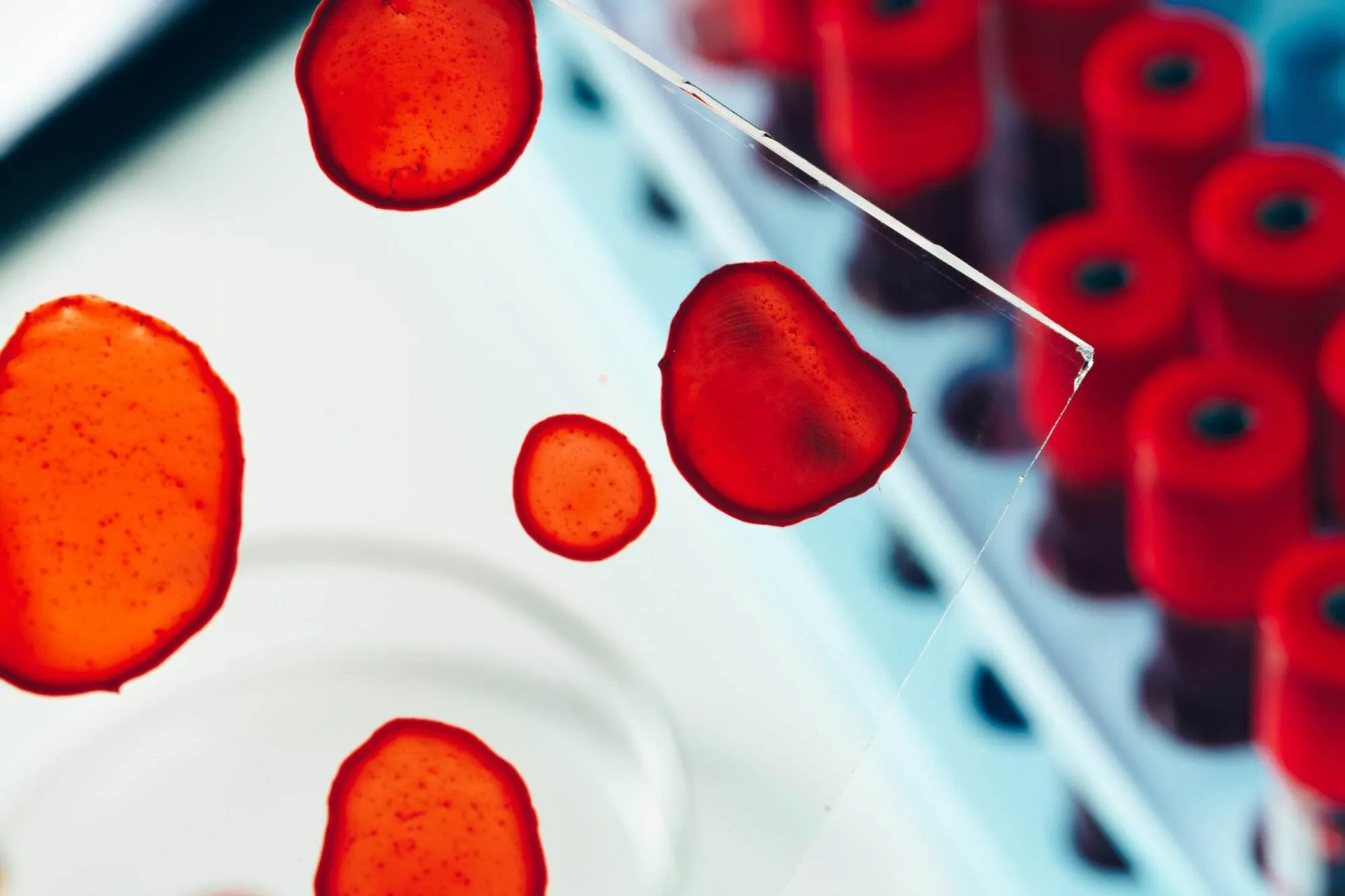Imagine your body as a high-performance engine and iron as the premium fuel that powers its function. Without enough iron, your motor runs slow and sluggish, and you feel drained of energy. That’s where iron infusions come in – they’re like a turbo boost to your system, giving you the iron boost you need to power through your day!
In this article, we’ll delve into the intricacies of iron infusions, covering topics from their purpose to the procedure itself. Get ready to enhance your understanding of iron infusions!
What Are Iron Infusions?
Iron infusions are an important type of intravenous therapy that can help treat iron deficiencies. Iron infusions are administered to individuals with low blood iron levels, providing the necessary boost from the treatment. The most common form of iron infusion is called a “siderophore,” which uses non-heme iron.
Iron deficiency is often found in women and children. Embarking on the incredible journey of pregnancy, nearly half of all women find themselves grappling with the challenge of low iron levels. Unbelievably, women find themselves facing overwhelming odds, as they possess a significantly higher susceptibility to anemia when compared to their male counterparts. Insufficient iron intake through diet or rapid growth phases (such as puberty) can also contribute to iron deficiency in children and adolescents.
Besides addressing particular conditions resulting from low hemoglobin levels (responsible for oxygen transport), like anemia or hypothyroidism, physicians also utilize iron infusions in treating other ailments, such as heart failure and chronic kidney disease (CKD).
When Is An Iron Infusion Injection Required?
Iron infusion injections are a medical procedure that delivers intravenous iron directly into the bloodstream to replenish low iron levels in the body. Iron assumes a pivotal role in the grand symphony of our bodies, orchestrating the production of hemoglobin—a majestic conductor that tirelessly escorts life-giving oxygen to every cell and tissue, harmonizing vitality within. Insufficient iron levels can lead to iron-deficiency anemia, a challenging condition marked by weariness, frailty, and a significant decline in vitality.
An iron infusion injection may be necessary for those experiencing iron-deficiency anemia, often resulting from underlying health issues like chronic blood loss, malnutrition, or gastrointestinal problems. For instance, people with celiac disease or inflammatory bowel disease might face challenges in absorbing iron from their food.
Additionally, those who have had bariatric surgery or experience heavy menstrual bleeding may also require an iron infusion. Don’t overlook any signs of anemia or hesitate to voice your worries about your iron levels – seeking advice from your healthcare provider is absolutely vital.
When You Have Iron-Deficiency Anemia
Anemia arises when the body grapples with a shortage of vibrant and robust red blood cells, ultimately impacting overall health. This condition is attributed to various factors, such as blood loss and specific diseases. Anemia, a stealthy intruder of vitality, stealthily saps away your energy, leaving you fatigued and worn out. Beware of its cunning effects: dizziness and a complexion drained of color, like a whispered secret revealed on your skin.
Doctors may recommend an iron infusion if you are experiencing severe anemia that does not respond to treatment with oral supplements or vitamin injections. An iron infusion is also utilized when a higher iron dosage is needed than oral supplements can deliver promptly, as in cases like cancer diagnosis or conditions requiring frequent platelet transfusions due to internal bleeding in bone marrow cavities (known as hematopoietic stem cell transplantation).
After surgery, injury, or a bleeding episode:
Often, a blood transfusion is necessary following surgery. Afterward, giving your body iron supplements may be required if you cannot take enough iron orally and the body needs more.
If you are unable to absorb iron from food:
If your body grapples with a blood disorder such as sickle cell disease, the ability to soak up iron from nourishing meals becomes a formidable challenge, leaving your system bereft of this vital mineral.
Please note that iron supplements may not correct your iron deficiency. If this happens, you may need to have an iron infusion. Iron is administered directly into a vein through a needle in a process called iron infusion. Experience this transformative procedure in a doctor’s office, hospital setting, and the comfort of your very own home.
Types of Iron Infusions
Iron infusion injections come in various forms, each designed to meet patients’ unique needs. Several frequently encountered varieties of iron infusions include:
1. Ferric carboxymaltose (FCM) – FCM is an iron infusion used to treat iron-deficiency anemia. It is a fast-acting and highly effective iron infusion that quickly relieves symptoms.
2. Ferric Gluconate – Ferric gluconate is a type of iron infusion delivered slowly and steadily to help rebuild body iron stores over a longer period.
3. Iron Dextran – Iron dextran is a type of iron infusion used to treat individuals with severe iron-deficiency anemia. It is a highly concentrated form of iron that rapidly boosts iron levels in the body.
4. Sodium Ferric Gluconate Complex – Sodium ferric gluconate complex is a type of iron infusion used to treat individuals with iron-deficiency anemia and who have difficulty absorbing iron from their diets.
The appropriate iron infusion for a patient is determined based on their individual requirements, the extent of their iron-deficiency anemia, and the presence of any underlying health conditions. Your healthcare provider can help determine the most suitable iron infusion.
Benefits of Iron Infusions
Iron infusions involve the direct delivery of iron into the bloodstream, yielding numerous advantages for individuals experiencing iron-deficiency anemia or other conditions affecting their iron levels. Some of the most significant benefits of iron infusions include:
1. Rapid Increase in Iron Levels – Iron infusions offer a notable advantage with their ability to swiftly boost the body’s iron levels, leading to a rapid increase in iron concentrations. This offers significant advantages, especially to individuals experiencing severe iron-deficiency anemia, as it provides a rapid increase in their iron levels.
2. Improved Energy Levels – Individuals who receive iron infusions often experience improved energy levels and reduced fatigue by increasing iron levels. Enhancing their overall quality of life and granting them the ability to partake in previously inaccessible activities are potential outcomes.
3. Increased Concentration and Mental Alertness – Low iron levels can impact mental function and reduce concentration levels. Iron infusions can help restore these functions and improve mental alertness, benefiting students, athletes, and busy professionals.
4. Better Physical Performance – Iron is essential for producing hemoglobin, which carries oxygen to the body’s cells and tissues. With improved iron levels, individuals may experience improved physical performance and endurance, which can help them participate in physical activities more easily.
5. Effective Alternative to Oral Iron Supplements – Iron infusions can provide an effective alternative for individuals who have difficulty absorbing iron from their diets or experience gastrointestinal side effects from oral iron supplements.
Side Effects of Iron Infusions
Iron treatment is a procedure used to treat iron deficiency anemia. Although iron injections are typically safe and efficient, they may induce side effects in certain individuals. Common side effects often associated with iron infusions encompass:
1. Allergic Reactions – Iron infusions can lead to severe allergic reactions, making them one of the most serious side effects. It can cause itching, hives, difficulty breathing, and swelling of the face, lips, tongue, or throat. In case you encounter these symptoms while undergoing or after an iron infusion, it is crucial to promptly seek medical attention.
2. Pain or Discomfort at the Injection Site – If the iron infusion is administered intravenously, certain individuals may encounter pain or discomfort specifically at the injection site, which can be noticeably intensified. Pain or discomfort may be accompanied by redness, swelling, or tenderness.
3. Nausea and Vomiting – Iron infusions can cause nausea and vomiting in some individuals. It can be especially pronounced if the injection is delivered rapidly.
4. Headache – Iron infusions can cause headaches in some individuals, which can be accompanied by dizziness, fatigue, and weakness.
5. Changes in Heartbeat or Blood Pressure -Iron infusions may lead to alterations in heartbeat or blood pressure for some individuals. These effects can be particularly noticeable if the injection is administered rapidly.
6. Iron Overload – Although rare, excessive iron in the body can result in iron overload. Iron overload can lead to severe health problems, including liver and heart damage.
7. Chills and Fever – Some individuals may experience chills and fever after receiving an iron infusion. The coolness and fever can be due to an allergic reaction or an infection.
8. Stomach Cramps – Iron infusions can cause stomach cramps in some individuals. The cramps can be accompanied by bloating, nausea, and diarrhea.
9. Chest Pain – Chest pain is a rare but possible side effect of iron infusions. If you experience chest pain during or after an iron infusion, seek medical attention immediately.
10. Changes in Skin Color – Iron infusions can cause changes in skin color in some individuals, leading to yellow or green discoloration.
It is important to note that not everyone will experience side effects from iron infusions and that the severity and duration of side effects can vary from person to person. If you experience any side effects
Iron infusions are a great way of getting the iron you need to boost your health. If you have questions or concerns about this treatment, contact your doctor or us today. We can help you get started on the procedure and also help you understand what side effects you may experience and what steps you can take to reduce your risk.






